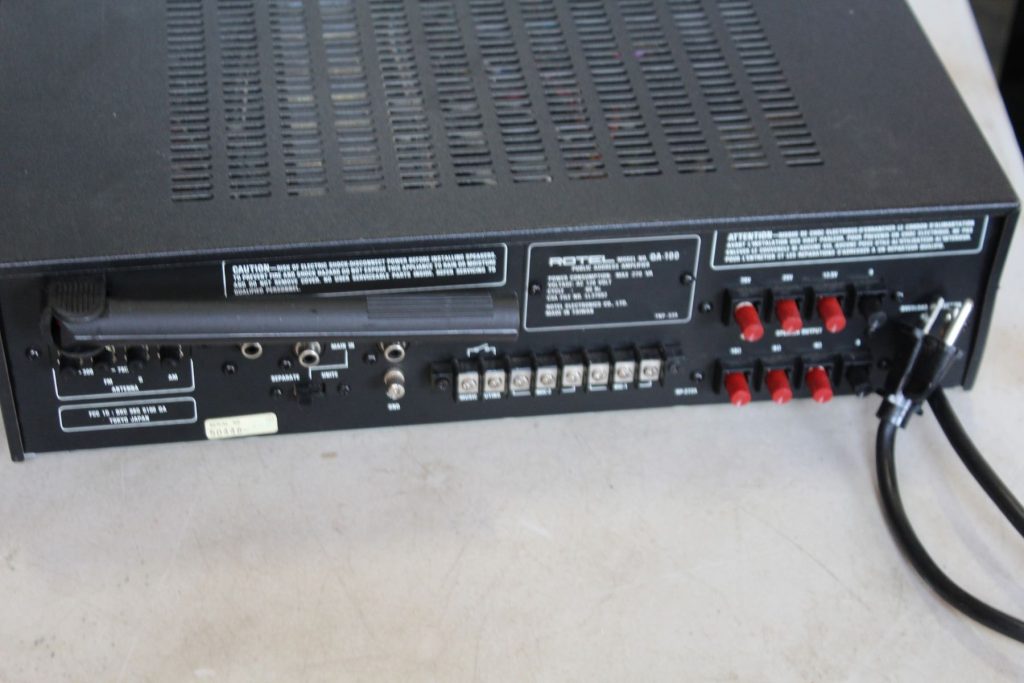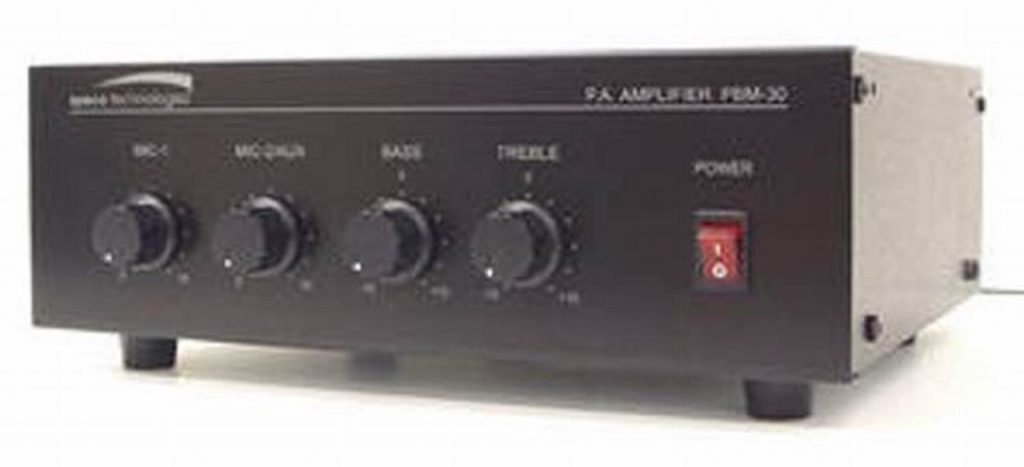If you already have a public address system in place, but you are not quite happy with, say, the clarity of the sound, or the power, then there is one thing you should consider doing. In short, I am referring to getting an amplifier. These are designed specifically to enhance the quality of your overall PA system, providing for clear sound, great power, and an overall perfect functionality. The only thing is, though, you may not be sure how to choose the right one for your particular needs.
In case you’re in the process of setting up an entire PA system from scratch, this could help you make the right choices: https://www.hedgethink.com/the-many-benefits-of-public-address-systems/
Anyway, as I was saying above, while you may understand the need for getting an amplifier, there is a chance that you are not entirely sure about how to choose and get the perfect one for you. So, that is precisely what we are going to be discussing right now, as I’ll share tips that should help you make up your mind. Before we get to that, though, let us just quickly make sure that you understand the actual role of PA amplifiers in the first place.
Basically, these serve a pretty straightforward purpose. In short, they take the sound from a microphone, a mixer, or any other source for that matter, and then amplify it as they reach drive speakers. Without these in place, your sound may be unintelligible, and not to mention that the speakers probably wouldn’t be able to produce sufficient volume for large audiences.
So, now that the purpose of these products is clear, let us get back to our main topic. While you may know that you need one of these items, you may be confused about how to get the best ones. And, as mentioned above, I am now going to share some tips that should help you make the right choice. Let us, thus, get started right away.

1. Determine Your Power Needs
It is not a surprise that you have to begin by determining your power needs. After all, you have to ensure that the amplifier you’ll get will have enough power to drive your speakers effectively. So, clearly, the power has to match the requirements of the speaker, so as to avoid any kinds of distortions. Thus, to decide on the power, check your speakers’ power handling, but also consider the size of the venue, and make sure to match impedance rating.
2. Think About the Number of Speakers You Want to Connect
The next thing you will have to do is think about the actual number of speakers that you want to connect to this particular device. This will help you decide on the number of channels you need. The idea here is for the PA amplifier you choose to be capable of supporting your overall setup. What you should remember here is that, if you’re planning on expanding the system in the future, it would be best for you to invest in a multi-channel amplifier, as it will provide for the flexibility you need while growing.
3. Choose a Circuit Design
Choosing a circuit design is also an important step in this particular process. Different amplifiers, naturally, come with different circuit designs, all of which have their own pros and cons. These are represented in terms of classes, so you have to get acquainted with those in details, in order to figure out what would work best for you. Most usually, PA systems benefit from Class AB or Class D, as those provide the perfect balance between efficiency and quality, which is undeniably a big deal.
4. Check the Integrated Features
A lot of amplifiers come with certain integrated features that could be rather useful for different applications. For example, a built-in DSP will allow for crossover control, equalization, as well as compression for fine tune audio. Then, bridging capability allows you to combine amplifying channels in order to get more power output to a single speaker. Of course, there are also cooling systems that prevent overheating, thus ensuring the longevity of your devices. In any case, the point is that you should carefully check the integrated features, and figure out what would work for you perfectly.

5. Think About Portability
Portability is one of those things that a lot of people tend to forget, but that is actually rather important in certain cases. Basically, if you know that you will need to move your PA system frequently, or even from time to time, considering portability is essential when choosing your amplifier. This is because you want to be able to easily move the system, which is why checking the size and the weight of the product before buying is an absolute must. Here are some tips on choosing PA systems in general, especially if you need them for live music experiences.
6. Consider Reliability
Reliability is, clearly, one of the most important factors to consider here. That’s because you want them to be durable, and to be able to serve you for a long time, without facing any kinds of issues along the way. This is why you should check the build quality of the amplifiers, as well as the general reputation of the brands that are selling these, in an effort to get the best solution for yourself.
7. Choose a Reputable Provider
The mention of brand brings us to another important point. To cut right to the chase, you will have to choose a reputable provider of these products, that is, a trusted shop where you’ll buy the amplifiers for your PA system. This, naturally, means that you’ll have to carefully research different shops, reading reviews about them and their products, and aiming at determining reputation before making any kinds of final choices.
8. Keep Your Budget in Mind
Finally, don’t forget to keep your budget in mind at all times. And, while you should aim at sticking to it as much as possible, you should know that paying a bit more for great quality is always a good move. In the end, it is the quality of these products that should play a major role in your decision, so don’t compromise it.





![Install MetalKettle Repository on Kodi [2019 Update] Metal kettle](https://www.meritline.com/wp-content/uploads/2018/07/19-3-100x70.jpg)


